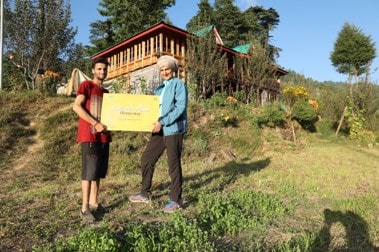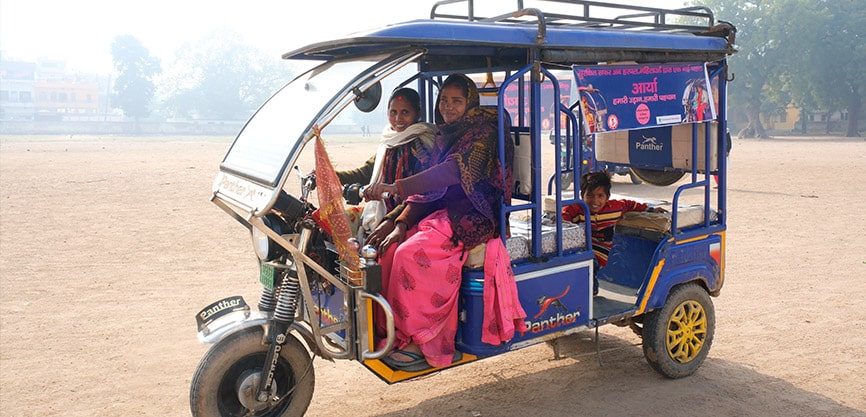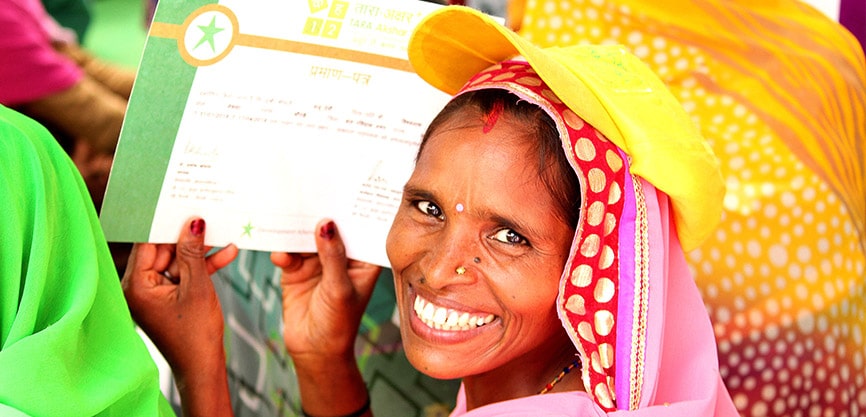
Women Empowerment is essential for sustainable development. At Development Alternatives, we take a participatory approach such as thorough listening to identify the real issue, co-creating solutions that trigger systemic change in communities, and channelising women towards opportunities that are aligned with their ambitions. This social innovation approach bridges the gap between women's potential and access to information, finance, technology, and market, which is enabling them to reach their full potential. Our Initiatives include mentoring programs in entrepreneurship and employability through, apprenticeships, skill enhancement, financial, digital and enterprise development training. We promote an environment of entrepreneurship and innovation, enabling women to reach their full potential.
We are creating a more equitable and sustainable future for all through investing in women's economic empowerment.

Development Alternatives through its tourism-based livelihood project has been instrumental in streamlining the conservation and livelihood agenda in two Himalayan states i.e. Himachal Pradesh and Uttarakhand. The project sanctioned by National Mission of Himalayan Studies (NMHS) aims at conserving natural resources while providing a sustainable source of livelihood to women and youth of the two states. As part of the project, model for enhanced income generation for communities through rural Ecotourism was developed, which is an example of environmentally responsible mountain tourism. The project highlighted the importance of conservation of Indigenous Himalayan Knowledge through rural Ecotourism. The success of the project is well documented and it has the future capability of replication in other parts of the two Himalayan states.

"Fundacion ISS is committed to social inclusion, with a particular focus on empowering rural women in India. The project focuses on rural women because they are particularly vulnerable to poverty and are constrained by gendered and social barriers. The project aims to tackle safe mobility, which is an important issue for women and girls in rural areas, by leveraging networks to directly support women e-rickshaw entrepreneurs. By enabling these rural entrepreneurs, it assures access to safe transport networks, as well as it has the potential to disrupt existing restraints and empower women.
The ISS project directly targets 150 rural women, mainly from small and marginal land-holding families, as well as landless families.

Development Alternatives through their Skills to Self-Reliance model provides foundational, digital, and entrepreneurial literacy to women, leading to empowerment by improving their access to information, increasing economic opportunities, enhancing communication, increasing participation in civic life, and improving health outcomes. Post building capacities, Development Alternatives links them with suitable livelihood opportunities. It has been found that women who possess these skills can make informed decisions, access job opportunities, manage their finances, communicate more effectively, participate in their communities, and access health information and services. Through our flagship programmes like TARA Akshar+ and Faide Ki Ghanti, we aim to impart foundational, digital, and financial literacy to rural and peri-urban women, to cultivate a future where gender does not determine one’s ability to read & write and give women a fair chance towards a dignified life.